Is it legal or moral?

Often when instructing first aid courses, participants tell me there are many more reasons that cross their mind, when in a situation decide TO HELP or not. Some reasons are legal issues that frighten them but moral decisions usually win out.
What a terrible weight on a first aider’s shoulders to wonder if doing the right thing: will they be hurt or harmed in the process; how will they defend their decision, should they cause further damage; is it going to cost them; do I even remember my training?
As I do in training, I would like to clarify a few Ontario laws that cover good people that stop and help strangers at a time of their greatest need. No fear first aiders because the peace of mind from these four laws will allow you to have a clear conscious and peace of mind.
- This act provides assurances of protection from liability and covers anyone who is not being paid or expects any payment for their help.
- The act covers off duty medically trained persons, trained first aiders and any individual willing to help
- You are not held liable for any thing you do or failed to do while assisting
- anyone who is injured, ill or unconscious
- As long as your intentions were to only help at the immediate emergency situation
- As long as there was no gross negligence shown
Chase McEachern Act 2007 – (Heart Defibrillator Civil Liability)
- This act provides assurances of protection from liability and covers anyone who is not being paid for or expects any payment for their help.
- The act covers off duty medically trained persons, trained first aiders and any individual willing to help.
- You are not held liable for any thing you do or failed to do while assisting anyone who you believe needs an AED.
Owners AED Civil Liability coverage
- If you own an AED and maintain the AED as described by the manufacturer
- Ensures that the AED is available for anyone to use
- You will not be held liable for any actions from the use of the AED
- Any child that identifies themselves as having a severe allergic reaction (anaphylaxis shock) from Jr. kindergarten to grade 12 the school will have an emergency plan of action and maintains a file with lists of allergies, consent and location of medications.
- School staff will regular train on the administration of an epi auto-injector
- The school will minimize exposure to the allergy through education
- If a staff member believes the child is having an anaphylaxis emergency the staff may administer the student’s epi auto-injector without any liability
- Any child that identifies themselves as having severe asthma and who has a puffer may keep their asthma medication with them
- The school must maintain an emergency plan of action and the school will maintain a file with lists of allergies, consent and location of medications.
- School staff will regular train on minimizing the risk of asthma attacks and the supervision of asthma medication
- If a staff member believes the child is having a severe asthma attack the staff may supervise or administer the student’s medication without any liability
There is a lot of information in this post, but don’t be overwhelmed, there is only good news here. These laws are just telling you that, if you help someone in an emergency with good intentions you won’t be held liable!
“I alone cannot change the world, but I can cast a stone across the waters to create many ripples.” ― Mother Teresa
Stay happy my friends!

Kathryn Davies
President / Owner
Life’s Emergency Training
2 Comments
Leave a Reply
You must be logged in to post a comment.

May 11, 2016 at 6:54 pm
Jo-Anne Flink
Unfortunately, the Good Samaritan Act only protects you from being sued “successfully”. It does not prevent someone from attempting to sue you. I had a client who had exactly this situation and because it happened at work, everyone involved was sued including the 2 First Aiders. One of them was text book for the Act for the following reasons 1 – had no duty of care since she was not a designated first aider and wasn’t at work but was called by a panicing employee 2. She preformed CPR to the best of her ability but the casualty stayed VSA. 3. No gross negligence was ever implied. Unfortunately, the company’s legal team did not separate this person (against my advise) from the other employees or EMS (also named in the suit) since IMO they hoped that if they could prove this person’s lack of liability, it would work in favour for the rest of the company. This forced this employee to go through months of stress and meetings until she was finally cleared of any responsibility in the death. I am now very careful about discussing this with my students.
May 12, 2016 at 3:11 pm
Kathryn
Hi Jo-Anne valid and correct point. Unfortunately it can happen. Thanks for your added information.